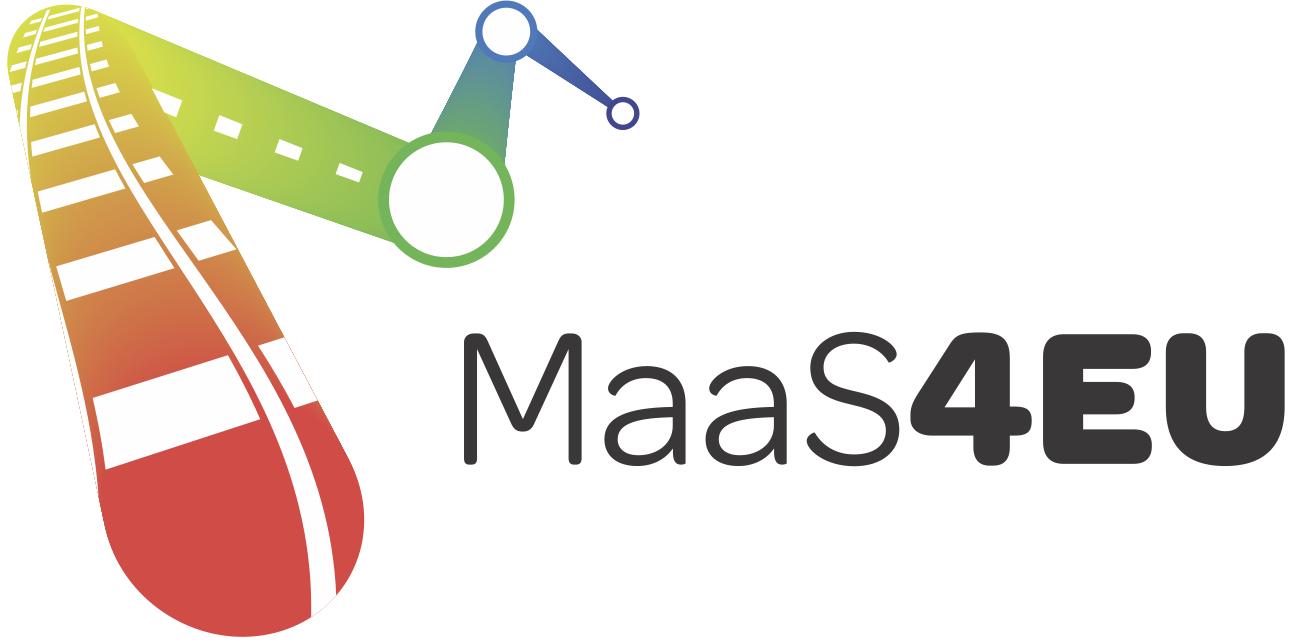June 2017–

With the projected growth in transport demand, the current modus operandi in transport supply is deemed unsustainable and generates the need for innovative services that could support seamless mobility and a shift from car ownership to usership. An emerging trend towards this direction is the integration of on-demand modes in conjunction with public transport, leading to the Mobility-as-a-Service (MaaS) concept. MaaS is a user-centric, intelligent mobility distribution model, in which users’ needs are met via a single platform and are offered by a service provider, the mobility operator. Although activities in this field are ongoing, at present there are no established frameworks and quantifiable evidence about MaaS costs and benefits, users’ needs, as well as its influence on travel patterns and car ownership of various user groups. Against this background the main goal of MaaS4EU is to provide quantifiable evidence, frameworks and tools, to remove the barriers and enable a cooperative and interconnected EU single transport market for the MaaS concept, by addressing challenges at 4 levels, (1) business, (2) end-users, (3) technology and (4) policy. This will be achieved by defining sustainable business models that support the cooperation across transport stakeholders, understanding user needs and choices, implementing the required technological infrastructure (a MaaS mobility hub) and identifying the enabling policy and regulatory frameworks. The project will provide quantifiable evidence about MaaS costs and benefits in 3 real-life, complementary pilot cases, demonstrating the concept in urban, intercity and cross-border trips at 3 EU areas (Greater Manchester, Luxembourg-Germany and Budapest). The consortium disposes all necessary competences and has been formed to be able to handle all tasks involved in the project, consisting of 17 partners from 9 countries, among them leading industries, renowned research institutions, transport authorities and operators, consultants and one ministry of transport.
Our project vision will be accomplished through the following objectives:
- To design prototype Business Models (BM) for a cross-company MaaS enterprise involving multiple actors within the EU single market (Public and Private mobility service providers, energy companies, Payment and security platforms, and People; 4Ps). The BM will leverage the breakthroughs of the sharing economy and crowdfunding and demonstrate the value, the benefits, the potential and viability of the MaaS concept. Several MaaS services/products including different combinations and amounts of mobility-related services will be designed based on users’ needs, while they will be delivered by different entities, who will act as MaaS operators, to assess the advantages and disadvantages of each case.
- To bring together and work with different (public and private) Mobility Service Providers (MSP) and transport authorities that operate in different geographical levels (i.e. urban, national, cross-border) to identify barriers and opportunities within the MaaS concept; to explore their willingness to open or accommodate their data on MaaS platforms, provide tickets on procurement and prices using a single unit, and tailor the existing company data exchange privacy frameworks to MaaS needs; to provide their services during the MaaS4EU demonstration phase.
- To explore the needs, preferences, demand and acceptance of various end-user groups for MaaS services and products via MaaS living labs and real life demonstrations; to explore willingness to share their information to assist transport authorities in their service and infrastructure planning, as well as trade their data with third-parties; to tailor the existing data privacy frameworks and passenger rights to the MaaS concept
- To design and develop the open MaaS4EU platform by bringing together (existing and new) well-defined technologies, processes, and interfaces for plugging-in disparate data sources enabling urban and cross-border multimodal planning, booking, ticketing and payment. MSP could accommodate their data and MaaS operators could use the platform to test, develop and scale their services. The open platform will ensure safe, stable, interoperable, reliable system operation that minimizes risk and maximizes opportunities for businesses, while at the same time offers the infrastructure for building reliable personalized mobility services for the end-users
- To support travellers in selecting the mobility plans that best fit their needs and optimally use them. Users will be offered a web interface and a mobile app, which assist them in their daily routines by considering the modes included in their MaaS purchased services, their daily activities, the real-time availability of the different services, and overall environmental impact. The project aims to deliver a highly positive MaaS experience while hiding the complexity of synchronising different systems (i.e. booking and ticketing engines)
- To propose the required “MaaS Policy Framework” that provides guidelines for a co-operative transport ecosystem regarding financing, technology, privacy and security, passenger rights, and regulations to enable the implementation of MaaS across Europe; to deliver checklists of items (regarding end-users, business, technical standards, security and safety and social inclusion) that any MaaS service should meet in order to be implemented in any jurisdiction
For more information visit http://www.maas4eu.eu

